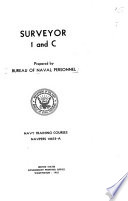 | Ernst Rudolph Breslich - Logarithms - 1917 - 408 pages
...and loga N = n • Then M = am and N =an M N' lOSa(^)=mn Why? = logaAf— loga N Hence the logarithm of the quotient of two numbers is equal to the logarithm of the dividend minus the logarithm of the divisor. For example, log |- = log 8— log 3 EXEECISE Find log... | |
 | George Neander Bauer, William Ellsworth Brooke - Trigonometry - 1917 - 346 pages
...enables us to replace multiplication by addition with the aid of a table of logarithms. (b) The logarithm of the quotient of two numbers is equal to the logarithm of the dividend minus the logarithm of the divisor. From (1) and (2) above we have, applying a law of exponents,... | |
 | William Charles Brenke - Algebra - 1917 - 212 pages
...of a product equals the sum of the logarithms of the factors. II. The logarithm of a fraction equals the logarithm of the numerator minus the logarithm of the denominator. III. The logarithm of any power of a number equals the exponent of the power times the logarithm of the... | |
 | Arthur Sullivan Gale, Charles William Watkeys - Functions - 1920 - 464 pages
...Then pq = bmbn = 6m+n. Therefore log6 pq = m + n why? = log6 p + logi, q. 8. Theorem. The logarithm of the quotient of two numbers is equal to the logarithm of the dividend minus the logarithm of the divisor. Let p = bm and q = bn, whence log6 p = m and log6 q -... | |
 | James Atkins Bullard, Arthur Kiernan - Trigonometry - 1922 - 252 pages
...Thus, the logarithm of a product is the sum of the logarithms of the several factors. (2) The logarithm of the quotient of two numbers is equal to the logarithm...numerator minus the logarithm of the denominator. Let us use the same numbers as in the previous demonstration. (3) The logarithm of a number affected... | |
 | Samuel Edward Dibble - Plumbing - 1922 - 650 pages
...two or more numbers equals the sum of the logarithms of the numbers. 2. The logarithm of a fraction is equal to the logarithm of the numerator minus the logarithm of the denominator. 3. The logarithm of a power of a number is equal to the logarithm of the number multiplied by the exponent... | |
 | William Moses Feldman - Biology - 1923 - 454 pages
...2-2061 - 1-2614 = -9447 = log 8-805 x = 8-805. Explanation. — (i.) The logarithm of the fraction is equal to the logarithm of the numerator minus the logarithm of the denominator (rule (ii.) ). (ii.) The logarithm of the numerator is equal to the sum of the logarithms of its separate... | |
 | Encyclopedias and dictionaries - 1926 - 890 pages
...1. The logarithm of a product is equal to the sum of the logarithms of its factors. 2. The logarithm of the quotient of two numbers is equal to the logarithm of the dividend less the logarithm of the divisor. 3. The logarithm of a number affected by an exponent is... | |
 | Paul Carus - Religion - 1914 - 876 pages
...logarithm of the product of numbers is equal to the sum of the logarithms of those numbers, the logarithm of the quotient of two numbers is equal to the logarithm of the numerator diminished by the logarithm of the denominator, the logarithm of a power of a number is equal to the... | |
 | United States. Bureau of Naval Personnel - Surveying - 1955 - 396 pages
...PRODUCT IS EQUAL TO THE SUM OF THE LOGARITHMS OF THE FACTORS, (2) THE LOGARITHM OF A RATIONAL FRACTION IS EQUAL TO THE LOGARITHM OF THE NUMERATOR MINUS THE LOGARITHM OF THE DENOMINATOR, and (3) THE LOGARITHM OF i is ZERO. The computation for finding the sums of the two sets of logarithms... | |
| |